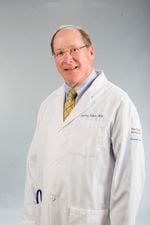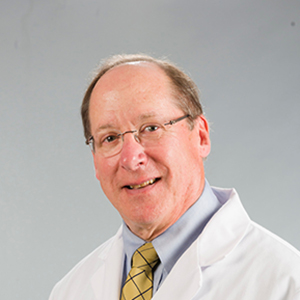
The “face” of head and neck cancer has changed over the past five years because the cause of these cancers is shifting.
An estimated 51,000 new cases of oral cavity and pharynx cancers will occur in the United States this year. It’s twice as common in men as in women, and the eighth most common cancer diagnosed in men, according to American Cancer Society 2018 Cancer Facts and Figures. Other types of cancer in this group include those of the larynx, sinuses, salivary glands, lip, ear structures and nasal cavity.
In the past, heavy use of both alcohol and tobacco contributed as the major cause of these cancers. Over the past decade, Human Papilloma Virus (HPV) has become a major cause of these cancers, notably in the oropharynx (tonsil and base of tongue). Survival is improved in this group of people with HPV-related cancer, perhaps related to the more treatment-sensitive underlying biology of the disease. This is important because younger, healthier non-smokers are now experiencing head and neck cancer, and a great percentage are living longer and therefore potentially at risk for developing late effects of therapy.
As one of the largest and most comprehensive providers of head and neck cancer care in New England, Hartford HealthCare Cancer Institute physicians and staff have a commitment to help monitor patients after treatment and provide interventions as appropriate.
Therapy for these patients frequently involves either surgical removal of the cancer and involved lymph nodes in the neck or a combination of radiation therapy and chemotherapy, or some combination of all three therapies. Given the function-rich location of these cancers, any therapy can have a short- or long-term impact on speech, swallowing, taste, smell, appetite, ability to eat and drink, appearance, breathing, mouth moisture, neck mobility, dental and jaw bone health and a host of other functions.
All of our therapies have evolved to help reduce adverse effects. Advanced surgery techniques and reconstruction methods help to enhance functional recovery. Intensity modulated radiation therapy (IMRT) helps reduce radiation dose to uninvolved tissues such as salivary glands when feasible. Chemotherapy choices now include targeted molecular and immunotherapy options, which may help to reduce side effects.
We encourage our patients to have a “survivorship visit” after active treatment is completed to discuss their treatment summary and survivorship care plan (SCP), a document provided to them at this visit. This includes recommended surveillance for their cancer, wellness strategies, other cancer screenings they should embrace and possible late effects of treatment. Some of these late effects may occur in the first five years after treatment, and some could occur even later. The benefit of the survivorship visit is to educate the patient about these possible effects as well as to share the information with the patient’s primary care provider, who receives a copy of the SCP, so that they might help in this monitoring, even after the patient no longer sees their cancer care team.
Although late effects are not common, their identification may help to provide relief and improved quality of life for the patient. For example, by identifying an issue such as pharyngeal dysfunction or exposed bone in the mandible, the patient and their PCP can contact our care team to gain help from speech therapy, oral surgery, or other members to help address the issue.
We are collaborating with researchers at Memorial Sloan Kettering Cancer Center to develop an SCP and monitoring process that will help to support patients and families during the months and years of survivorship. With major grants from the National Cancer Institute and the American Cancer Society, these efforts will likely help head and neck cancer patients throughout the U.S. and abroad.
If you have completed cancer therapy and have not had a survivorship visit, we are happy to schedule one for you. Please call our CANCER CONNECT line at 855-255-6181 to arrange.
Dr. Andrew L. Salner is Medical Director of Hartford HealthCare Cancer Institute at Hartford Hospital and a survivorship researcher.


